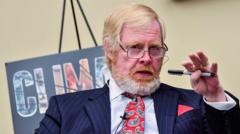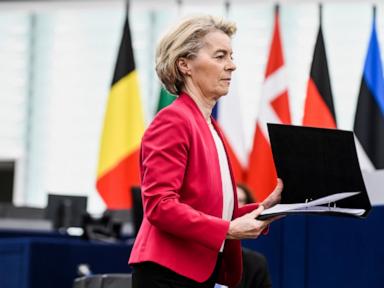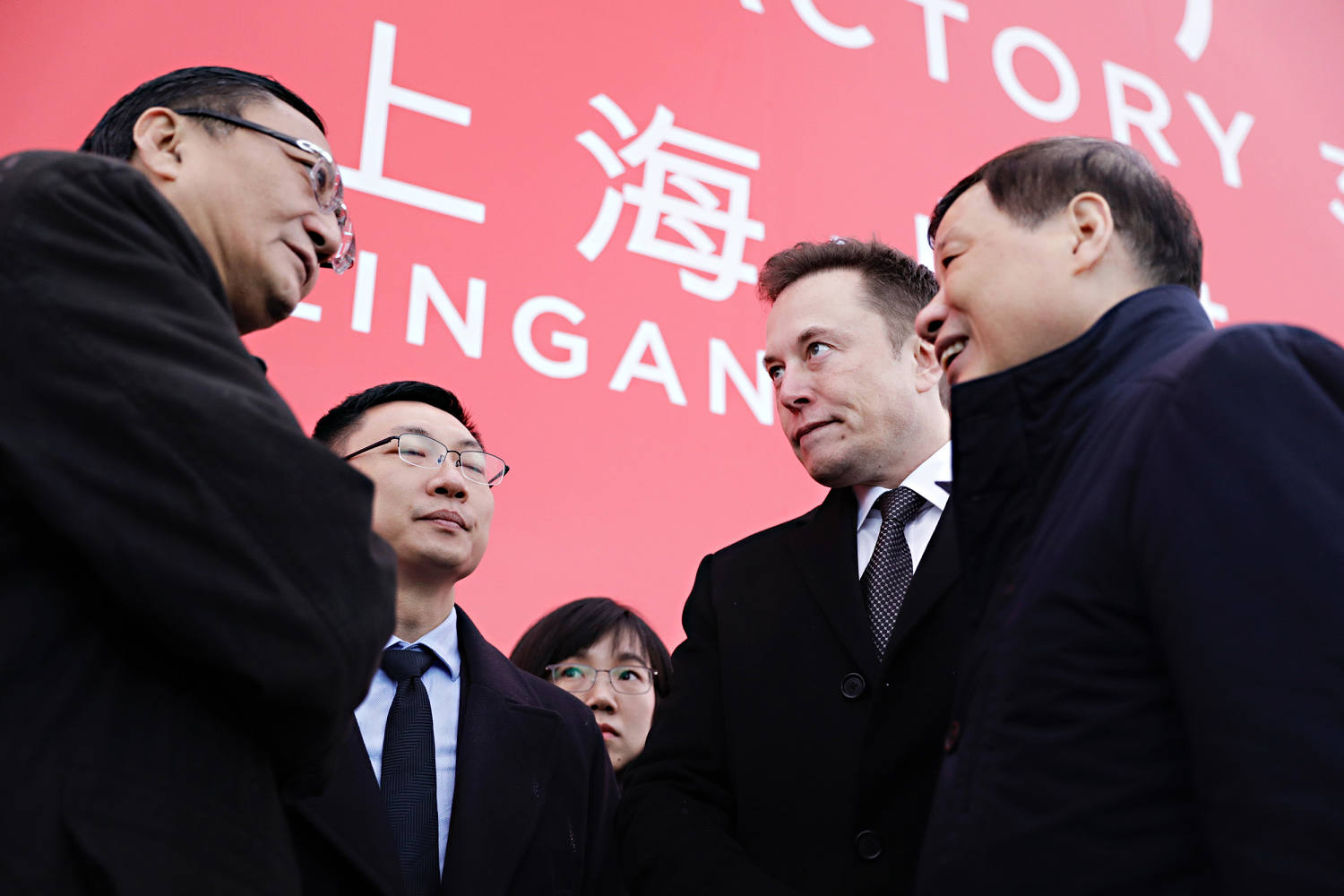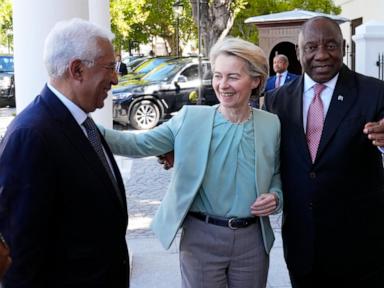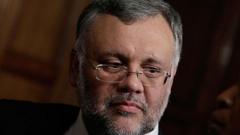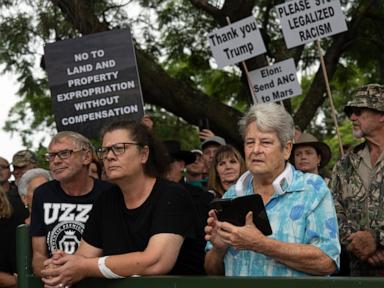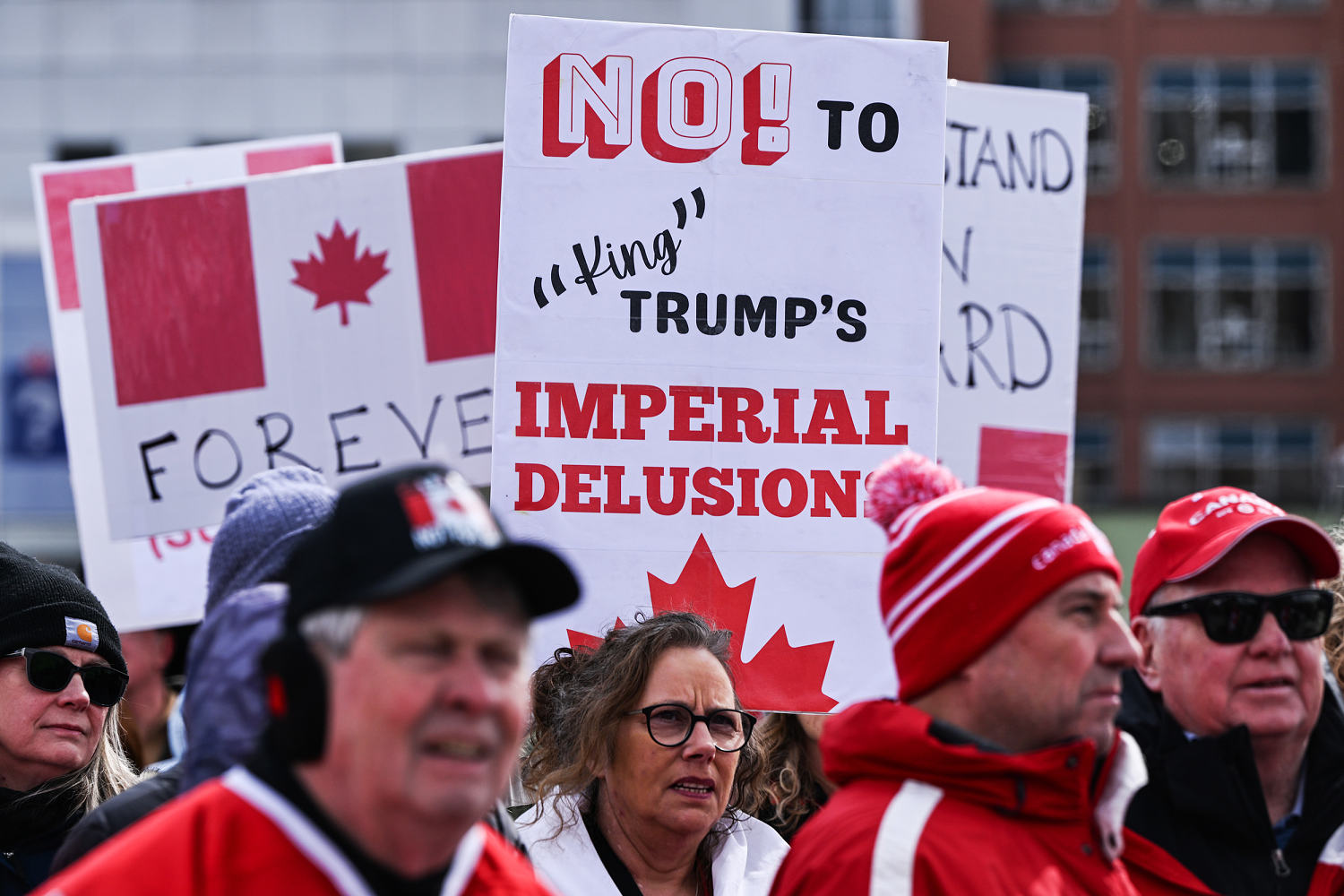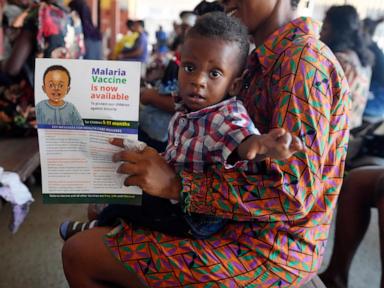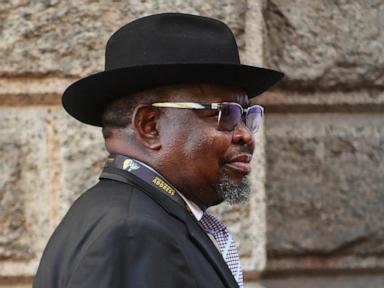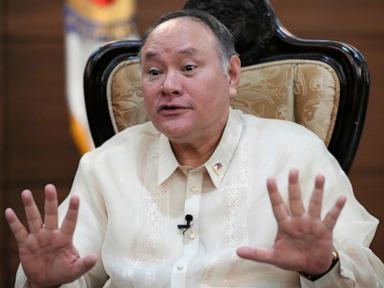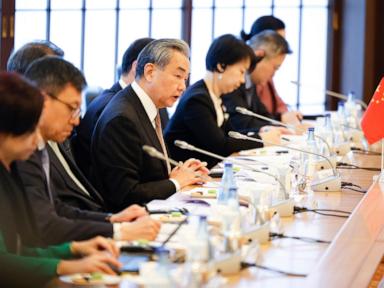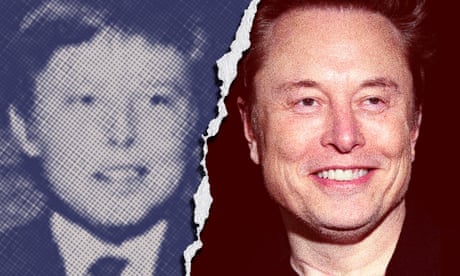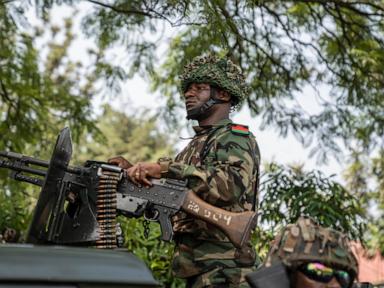On March 20, the office of South African President Cyril Ramaphosa had to ask Johannesburg city councilors not to rename Sandton Drive, where the U.S. consulate is located, for Leila Khaled, a Palestinian who helped hijack TWA Flight 840 in 1969.
“Do not engage in any action that will further inflame the situation,” said Vincent Magwenya, the president’s spokesman, referring to the continuing flare-up with the U.S. “We have a major diplomatic situation that we are managing. Please support us.”
Nonetheless, Magwenya did not ask the city to drop its plan permanently. Lawmakers from Ramaphosa’s African National Congress are among those behind the move to change the street's name.
Ramaphosa, at the moment, is trying to calm tensions with the Trump administration. On Feb. 7, Trump issued the executive order “Addressing Egregious Actions of the Republic of South Africa.” Among other things, the order cut off aid and assistance to the country — the U.S. extended about $440 million to South Africa in 2023 — and promoted “the resettlement of Afrikaner refugees escaping government-sponsored race-based discrimination, including racially discriminatory property confiscation.”
Ramaphosa said South Africa would “not be bullied.” Pretoria termed the executive order part of “a campaign of misinformation and propaganda.”
Bucknell University’s Zhiqun Zhu accuses Trump of “unnecessarily” creating discord with South Africa. Zhu is certainly correct that Trump has roiled relations with perhaps Africa’s most important state, but he is wrong to say that the tension is unnecessary.
Yes, the Trump administration did not need to start a public argument about the confiscation of white-owned land. However, the U.S. has fundamental disagreements with the South African government.
The executive order states, correctly, that “South Africa has taken aggressive positions towards the United States and its allies, including accusing Israel, not Hamas, of genocide in the International Court of Justice, and reinvigorating its relations with Iran to develop commercial, military, and nuclear arrangements.”
Gregory Copley, president of the International Strategic Studies Association, told me that “South Africa’s political leadership, under heavy pressure from the People’s Republic of China, has not only shown disrespect toward the U.S., while holding its hand out for free cash, but also disrespect to U.S. friends and partners, Israel and [Taiwan].”
“South Africa is China’s front man, the conman, the guy with three balls on the sidewalk on Fifth Avenue,” says Jonathan Bass, chairman and CEO of Argent LNG.
Copley and Bass are on to something. America has funded humanitarian programs in South Africa, such as HIV and other health-oriented initiatives, while allowing Pretoria to actively undermine Washington’s policies.
Trump is dumping that misguided approach and moving from soft to hard power tactics. After all, China employs hard power in Africa, so why shouldn’t the U.S.? And why, asks Bass, should the U.S. support a Chinese front?
The risk is that America’s harder tactics, in the words of Hong Kong journalist Shi Jiangtao, “could push the continent’s most advanced economy towards China and alienate much of the Global South.”
In reality, Washington does not have to worry much about that.
First, South Africa is already firmly in China’s camp. Second, China’s economy is crumbling, and Beijing is now having trouble funding its promises to Africa.
“From a new capital in Egypt to cement factories in Ethiopia, major Chinese projects have quietly been shelved, reversed, or scaled down,” wrote Stewart Paterson for the Hinrich Foundation.
China has already reached high tide in Africa and could quickly become yesterday’s story. Countries, especially South Africa, will increasingly need the U.S.
Perhaps more importantly, Ramaphosa’s country is itself also stumbling.
“The ruling African National Congress has transformed South Africa into a one-party state, essentially, with the ANC riven by various factions, almost all seriously corrupt,” said Copley, who is also editor-in-chief of Defense and Foreign Affairs Strategic Policy. “All of the functioning state infrastructure, from airlines and railroads to electrical power generation and distribution, [has] been stripped of their assets and cash has been siphoned off to various [African National Congress] functionaries.”
Three decades of misrule have left the country in distress. The economy grew only 0.6 percent last year. People are unhappy, and there is even growing talk of secession.
South Africa, despite its present alignment with America’s enemies, needs the U.S. Unfortunately for Ramaphosa, the Trump administration does not perceive Africa to be important, so it does not think South Africa is important.
Trump is wrong about that, but his view leaves Pretoria with almost no leverage over Washington. So if it weren’t for the influential Elon Musk, born in Pretoria and still a citizen of South Africa, the White House would be paying no attention at all to the slow-motion disaster that is occurring at the southern tip of Africa.
Pretoria reportedly wants a new trade deal with the U.S. Trump loves deals but has no appetite for being disrespected, so don’t expect Sandton Drive to be renamed for Leila Khaled, or any other Palestinian for that matter, in the near future.
Gordon G. Chang is the author of “Plan Red: China’s Project to Destroy America” and “The Coming Collapse of China.”



